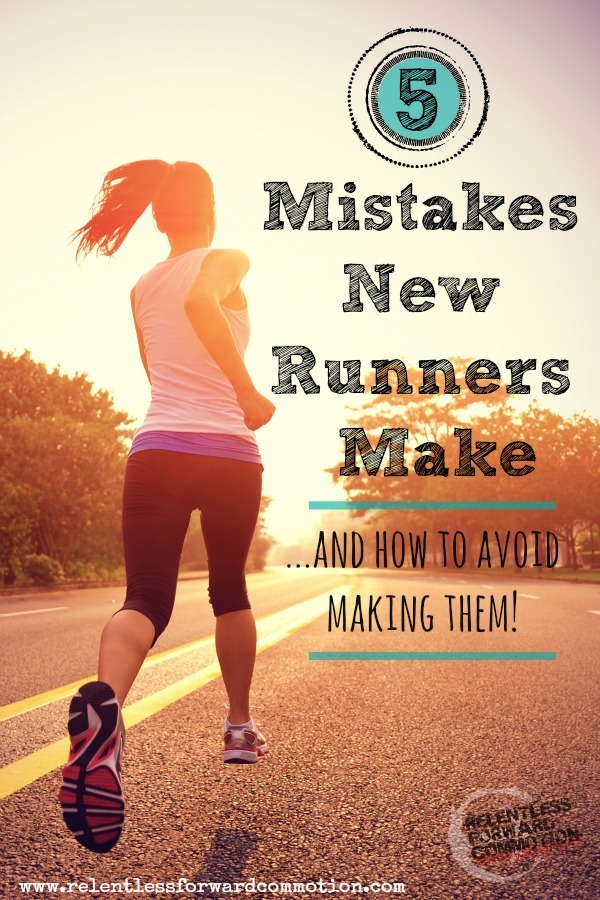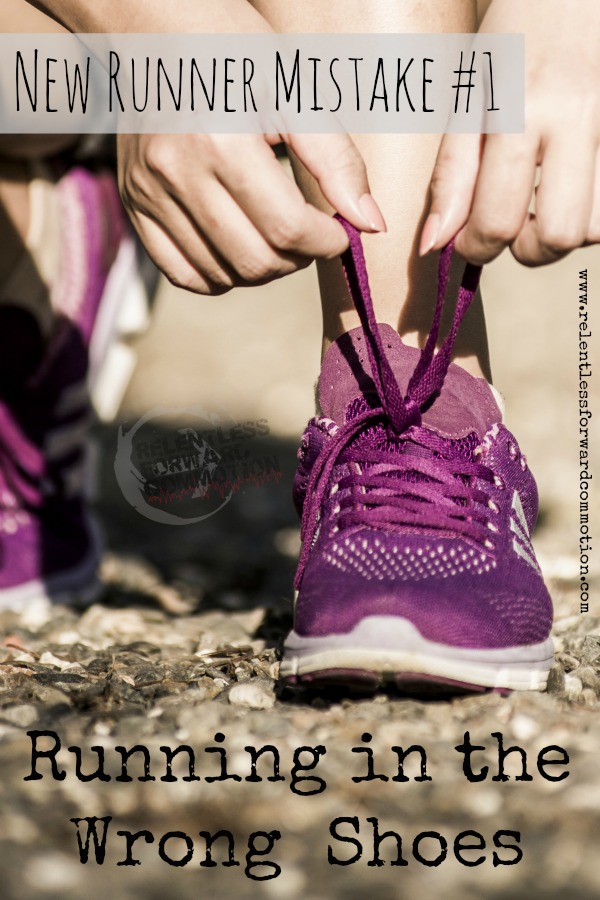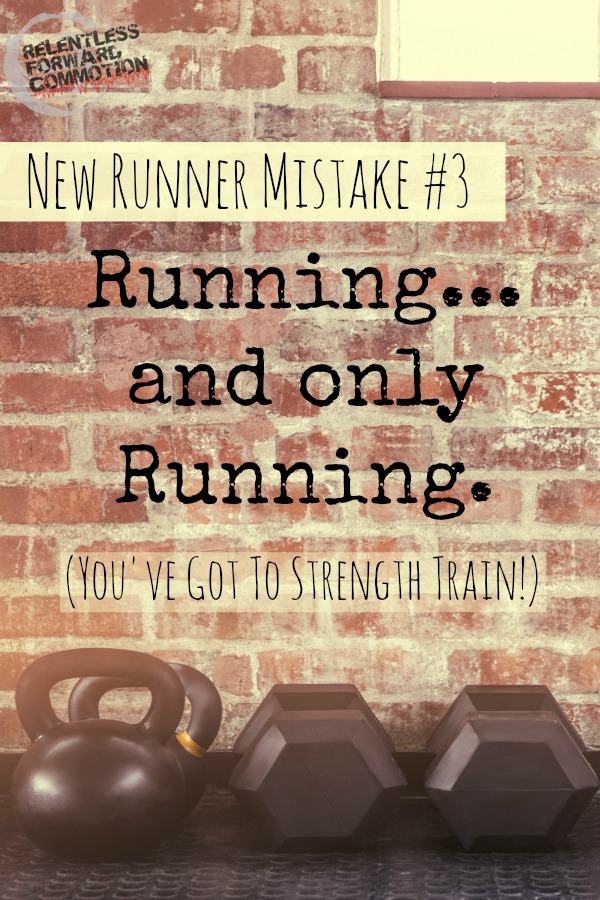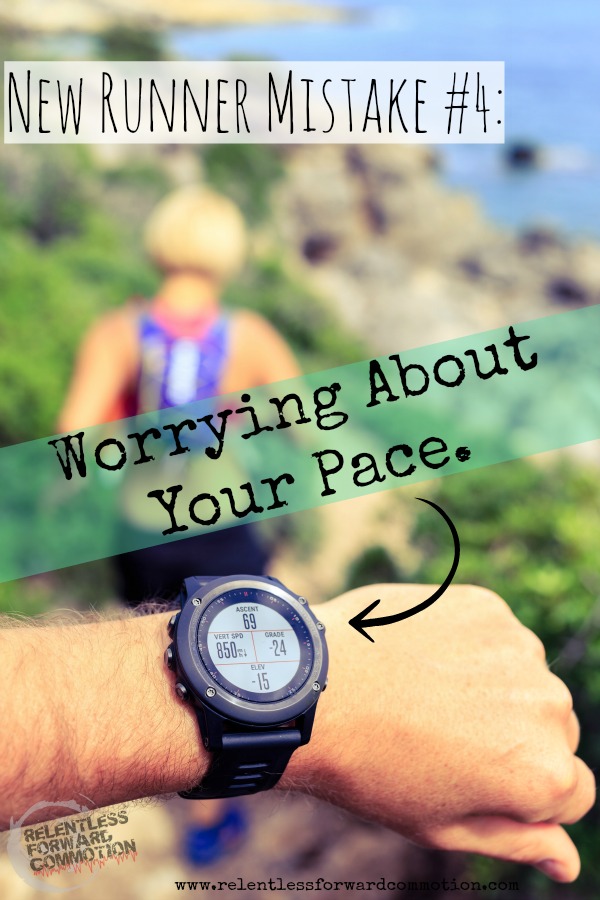Last Updated on March 9, 2022 by Heather Hart, ACSM EP, CSCS
It’s January, which means the world is a buzz with people looking to make a lifestyle change. Gyms are full, pinterest is blowing up, and my own blog is getting a ton of “beginner” search hits. I couldn’t be happier, as sharing my passion of running with beginners ranks up there as one of my top 10 favorite things in the world, somewhere below how awesome my kids are just above my love for Hall & Oates. So here you go beginners, this one is for you.
Let’s talk about mistakes commonly made by new runners. I feel qualified to write this post, but it’s not because of my certifications, education, and experience coaching other runners. No, the reason I can tell you all about the common mistakes new runners make is because I’ve made every single one of them myself…sometimes more than once.
Those who live outside of the running world, oblivious to our obsession with miles, millimeter drop, and GPS stats, have no idea how much more intricate and involved the sport and hobby of running is above and beyond simply RUNNING. So it’s no wonder that a new runner may dive in head first thinking “yeah, running, I can do that” and find themselves making a ton of hindering mistakes. But don’t worry…that’s what us veteran runners and experienced mistake makers are here for…to share our blunders so hopefully you can avoid making them as well.
1. Shoes & clothes.
Let me be the first to tell you that you do not, I repeat, DO NOT, need the latest, greatest, fanciest gear, clothing, and technology to become a runner.
But…
On the other hand, if you want to avoid discomfort and even possible injury, the 5 year old tennis shoes and the free cotton t-shirt you got from joining your gym last year aren’t going to cut it either. Here’s why:
Shoes matter. Believe it or not, there is more to picking out running shoes than simply size and color. When you walk into an athletic shoe store, your going to be faced with a variety of shoes, not all of which are designed for running. And it gets even more specific in the running shoe section: just like a set of fingerprints, no two runners have the same foot. Some runners pronate, while others supinate, or maybe even have a natural running gait. Some runners land on their mid to forefoot, while other runners predominately heel strike. And there are shoes designed for ALL of them.
(See also: 5 Running Shoe Mistakes You Could Be Making Right Now)
Confused yet? Don’t worry…the majority of athletes are not knowledgeable in this aspect of biomechanics and exercise physiology, and may not know how this affects their running either. That’s why a visit to your local running shop and the help from their knowledgeable staff will get you up and running on the right foot…pun absolutely intended.
Now, let’s talk about clothes: while you don’t have to look like you are about to head down the Nike fashion runway, you also don’t want to end up chafed from wet, heavy, clingy cotton. Believe me when I tell you that you’ll immediately regret the cotton decision the second you step into the shower post run, and the hot water lets you know EXACTLY where your clothes rubbed you raw in the form of searing pain. It’s not fun. In fact, it actually makes you temporarily regret ever thinking running would be a good idea in the first place.
Spare yourself that pain. Invest in sweat wicking, technical gear designed for exercise to avoid becoming a chafed, blistered, mess. And you don’t need to spend a fortune: most big box department stores carry their own lines of athletic gear for very reasonable prices. Further, discount clothing stores like T.J. Maxx and Marshalls (are those East Coast things?) carry brand name athletic clothing at a fraction of their normal retail price.
2. Too much, too soon.
To get better at running, you simply have to run a lot, right? Wrong. Sort of. Like any other exercise, your body is going to need to slowly adapt to the stressors running creates.
Now, no one actually decides to run a marathon one day, gets up off of the couch, and goes out and runs 26.2 miles on their first attempt. Well, that’s an assumption…I’m actually guessing there are a few crazy people out there who somehow managed to pull it off. But the rest of us? We start small as to avoid injury and burnout. As far as HOW far your first run should be? That depends on numerous things, including but not limited to your current fitness level. Start with short distances, and listen to your body. If you’re looking for a place to start, check out the Couch to 5K program.
And how do you progress? A general rule of thumb that is commonly repeated in the running world is to increase your running by 10% per week. For example, if you run 10 miles total one week, you should run no more than 11 the next week. If you run 25 miles one week, you should run no more than 27.5 the next. And so on. BUT…the 10% rule is not set in stone. Some people can safely increase their weekly mileage with higher jumps, others need even more time. Listen to your body, and do what feels comfortable.
3. Running…and nothing but running.
It was mentioned above and I’m going to say it again: a common mistake beginners, and even experienced runners for that matter, often make is thinking that in order to be a better runner, they need to keep running…and only running.
If I was to be nominated as President of Running, this would be my campaign platform. If you take away one thing from this blog post, let it be this:
You’ve GOT to CROSS TRAIN.
You’ve GOT to STRENGTH TRAIN.
Taking time off from running to focus on other aspects of fitness will make you stronger and faster, will help prevent injury (this one is HUGE) , and will contribute to your overall fitness levels and health, in areas like (but not limited to) bone density and metabolism. I promise I’ll spare you the lecture today, but PLEASE read this post: Strength Training For Runners: Why You Should Pick Up That Weight.
4. Worried about your pace? Stop.
Seriously, stop. You, my new running friend, are a beginner, and your comfortable pace is just perfect exactly where it is. You are not slowing anyone down or holding anyone back. You are not too slow. You do not have to be as fast as ______, even if ______ is a beginner too. YOUR pace is PERFECT.
(see: Stop Apologizing for Being a Slow Runner)
There is plenty of time in the future to work on speed and pace progression. But now? Now is the time to fall in love with the sport of running, to build your endurance and your muscular strength, and most importantly, build your confidence as a runner. The speed will come later.
Which leads me to my next point…
Walking isn’t bad. I PROMISE you that walk breaks do not mean you are a failure. If anything, walk breaks might actually HELP your running. Research shows that cardiovascular development peaks between 30-90 minutes of exercise. But most new runners cannot run for 30+ minutes straight. So how do we get that point, and therefore improve, if we can’t physically run for 30 minutes straight yet?
You know the answer: walk breaks.
5. FOMO.
That’s “Fear of Missing Out.”
I saved this one for last, because I think it’s a unique problem that has really escalated in todays world of social media. Today we have the ability to watch the day to day lives of friends and complete strangers unfold before our very eyes in the form of Facebook status updates or perfectly filtered Instagram photos. And in the running world, we now see, in almost real time, all of the training, racing, events, etc., that our running family participates in.
And it can be really, REALLY easy to get caught up in the “I want to do that!” or worse “If ______can finish that race, then I totally can to.” comparisons.
The problem lies in that often beginners get so caught up in thinking about what they want to do in the future that they forget to focus on the here and now. Wanting to train for a 50K when they’ve barely even finished properly training for a half marathon. Wanting to race every weekend instead of taking time off to focus on training or even more important, recovery.
Related: Couch to 100k: How to know if you are ready for the next distance.
Don’t let the FOMO rule your world. Think of your running as a journey, and focus on where YOU are in YOUR journey at that very minute. Your time for the races you want to do will come, but it’s more important to ensure you arrive at those starting lines safely and prepared, rather than trying to cram everything in NOW, possibly resulting in injury.
__________________________________________________________________
I hope this post did not intimidate, confuse, nor frustrate any newbies. Sometimes it can feel almost disheartening to start something new, read a post like this, and think “I AM DOING EVERYTHING WRONG!”
The truth is, even if you are doing everything on the above list, you are still running, and I assure you, there is nothing wrong with that. Running will truly change your life. But hopefully, the above post will possibly point out any potential errors that might be leading you down the path of possible injury or burnout. It sounds cheesy (mostly because it rhymes), but I share these mistakes because I care, and I truly want to see EVERYONE have a successful, positive running journey.
If you are a beginner and you have questions that were not covered in this post, please feel free to chime in below. I (another readers/commenters) would be more than happy to answer them!
Heather Hart is an ACSM certified Exercise Physiologist, NSCA Certified Strength and Conditioning Specialist (CSCS), UESCA certified Ultrarunning Coach, RRCA certified Running Coach, co-founder of Hart Strength and Endurance Coaching, and creator of this site, Relentless Forward Commotion. She is a mom of two teen boys, and has been running and racing distances of 5K to 100+ miles for over a decade. Heather has been writing and encouraging others to find a love for fitness and movement since 2009.





Monica Bruno
Great advise, Heather! I’m part of a running group on Twitter, and sometimes it’s hard not to fall into the FOMO feeling, but on the other hand, the support I get from them is amazing! Thanks for a great post and have wonderful weekend!
petite heartbeat
This is perfect! Great examples of common mistakes for sure!
James Welsh
Thank you Heather. While i am not new to running i am not a consistent runner. I take long breaks between runs and primarily focus on OCR’s. Ur article is very informative and i will definitely be using some of ur advice. Cheers